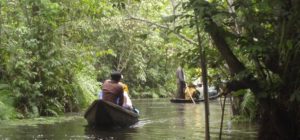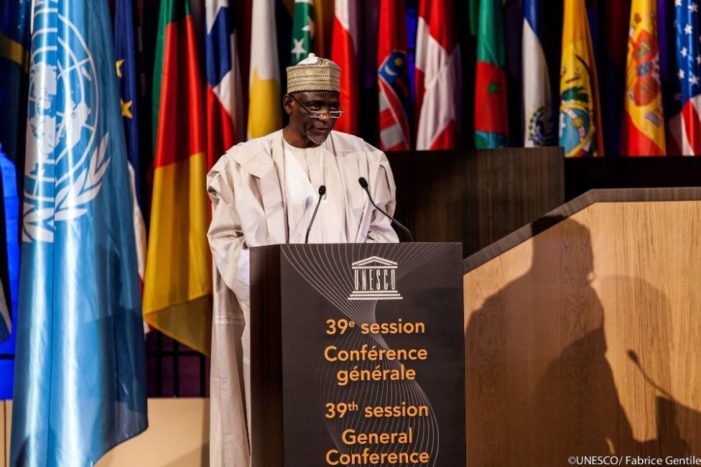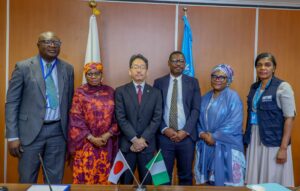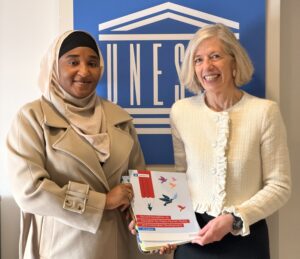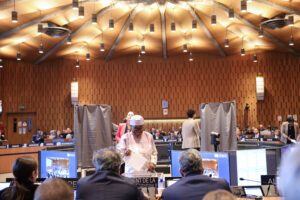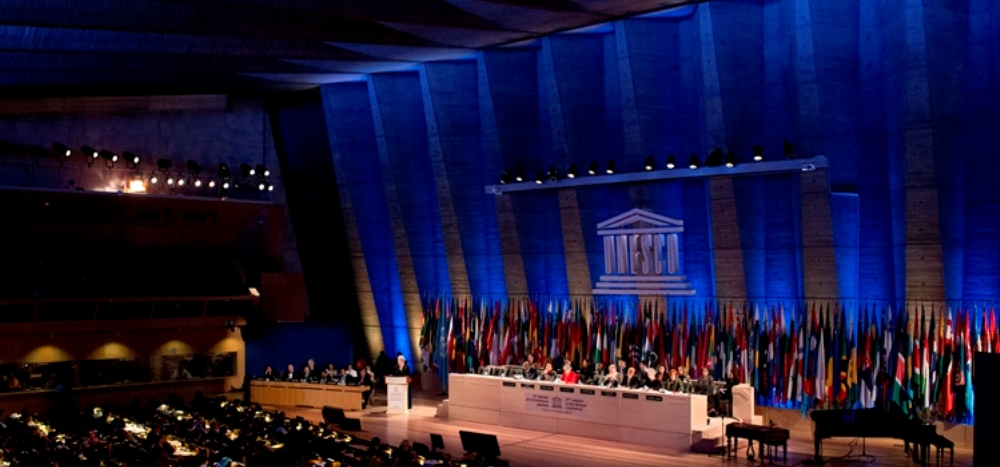
As the supreme policy-making body of UNESCO, the General Conference meets every two years to deliberate on and approve the Organization’s policies and main line of work as described in its Medium-Term Strategy (C/4) document, as well as approve the budget outlined in the Programme and Budget (C/5) document of the Organization. These documents comprising statements of intention, translated into implementable programmes with budgetary implications, sets the tone for UNESCO’s work once the General Conference approves them.
The 38th Session of the UNESCO General Conference was held from 3rd – 18th November, 2015, at the UNESCO Headquarters in Paris, France. As the supreme policy-making body of UNESCO, the General Conference meets every two years to deliberate on and approve the Organization’s policies and main line of work as described in its Medium-Term Strategy (C/4) document, as well as approve the budget outlined in the Programme and Budget (C/5) document of the Organization. These documents comprising statements of intention, translated into implementable programmes with budgetary implications, set the tone for UNESCO’s work once the General Conference approves them.
This Session was of particular importance as it marked the 70th Anniversary of UNESCO and the transition to a new global Sustainable Development Agenda, which was adopted by the United Nations on 25th September, 2015.
The General Conference also elected Member States into the Executive Board and other intergovernmental bodies of the Organization. Nigeria vied for re-election into the Executive Board and succeeded. Nigeria’s re-election into the prestigious second-highest Governing Body of UNESCO is unprecedented in the sense that, this would be the first time in the history of its presence in UNESCO that Nigeria is re-elected whilst seating on the Board. In the same vein, competition within the Africa Group was intense as there were seven (7) seats to be filled by twelve (12) Member States’ candidates for Africa. Nigeria got in by securing a total of one hundred and thirty two (132) votes.
Nigeria was also elected into three other Subsidiary Organs of the Organization during the Conference, namely, the UNESCO Intergovernmental Council of the International Hydrological Programme (IHP); International Coordinating Council of the Man and the Biosphere (MAB) Programme; and the Intergovernmental Council of the International Programme for the Development of Communication (IPDC).
By the end of the Session, the General Conference emphasised UNESCO’s leadership role as we move towards the implementation of the new Post-2015 Sustainable Development Agenda adopted by the UN. It also confirmed that Africa and Gender Equality remain its top global priorities and described peace and sustainable development as the guiding principle in implementing all of the Organizations activities.
For more information click here.
Youth Forum
Nigeria was well represented in the Youth Forum which took place from 26th to 28th October, 2015. Youth Delegates Mr. Osaghae David and Miss Hafsat Kaugama and Youth Desk Officer, Mrs. Tayo Omotosho attended the Forum. The theme discussed was “Climate Change and the post-2015 Sustainable Development Agenda,” to ensure that the voices of future generations remain at the centre of the new development agenda. The final recommendations of the Forum were presented to Member States during the General Conference.

